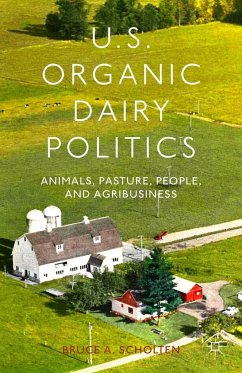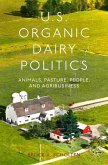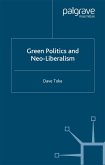Based on a decade of study, this book provides a scholarly overview of organic dairy politics, showing how politics, policy, and protest both inside and outside of agriculture can determine a future of pastoral landscapes resembling an earlier time in the western world or, alternatively, one made of dystopian ruralities.
"Scholten's book puts forward a new perspective on current trends in the American food system, and thus makes a significant contribution to geographies of food, political economy, and political ecology literatures. ... the book is appropriate for graduate students, academics, and farmers alike who are interested in the political landscape of the organic dairy industry in the USA and agricultural politics more generally." (Jennifer Mateer, Human Geography, Vol. 10 (1), 2017)
"The book begins with an introduction to organic dairying, highlighting its inception following a trend that began in the last half of the 20th century of decreasing dairy farm numbers and farmers, increasing farm and dairy herd size, and the proliferation of confined animal feeding operations (CAFOs). ... is informative for graduate students, academics, and farmers interested in the politics andplayers within the national organic dairy industry." (Nicole E. Tautges, Agriculture and Human Values, Vol. 32 (3), September, 2015)
"The book begins with an introduction to organic dairying, highlighting its inception following a trend that began in the last half of the 20th century of decreasing dairy farm numbers and farmers, increasing farm and dairy herd size, and the proliferation of confined animal feeding operations (CAFOs). ... is informative for graduate students, academics, and farmers interested in the politics andplayers within the national organic dairy industry." (Nicole E. Tautges, Agriculture and Human Values, Vol. 32 (3), September, 2015)









